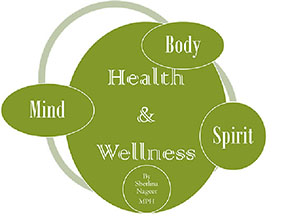There is a tendency among people, all over the world, to defer to doctors and other healthcare practitioners. Like other professionals with specialised knowledge and training, doctors/healthcare practitioners are generally accorded a great deal of respect by laypersons. This is understandable as these individuals do spend a great deal of their time studying and learning about the human body, disease processes, and treatment options. When we are sick and suffering, these are the people we turn to for help. We put ourselves in their hands, hoping and trusting that they will make the pain go away and make us feel better. This is an incredible thing indeed, for when we are sick we are at our most vulnerable, and there are few other instances when individuals entrust their well-being so completely to other persons. It is awesome and humbling. Sadly however, too often, this trust is abused.
Many persons seeking care for Chikungunya, for example, received a series of injections. However, many of these same people, when asked, did not know what was in the injection. This is not just a phenomenon limited to Chikungunya, in many other instances, treatment/medication is blindly received, with limited understanding by the patient of exactly what is being done. Often, people just go to the doctor and allow them to do whatever they think necessary, without questioning them.
Sometimes, when people do ask questions, they are shouted at or belittled. Some doctors and healthcare workers view any questioning as hostile or as a sign of the patient lacking confidence in their skills. However, it is the right of every person seeking healthcare to know exactly what is being done to their body, and to ask and get all their questions answered by the healthcare worker. It is crucial that more Guyanese understand this and become more assertive when dealing with doctors, nurses, and other healthcare providers. People should not be getting injections or drinking pills without knowing what medication is being administered, what the side effects are, etc.

Another example of abuse of power by healthcare officials is the administration of the Gardasil vaccine to schoolgirls by Ministry of Health officials without the children or their guardians being told of the many negative side effects of this particular vaccine, and only being given limited information about the causes and prevalence of HPV (which the vaccine is supposed to be working against).
Health is a complex topic and most laypeople are not going to have the same knowledge and information as those who have trained and are working in the health field – this is a fact. However, that does not mean that laypeople do not have their own type of expertise. In fact, laypersons need to realise that they are the ones who know their bodies best. A doctor/nurse only sees you when you are sick; you deal with your body and its processes on a daily basis. As such, persons have key information about their bodies’ functions that is critical to health and well-being. Doctors and other healthcare professionals need to realise this and to treat individuals seeking care with more respect. Persons also need to become more confident and secure in their own knowledge and to not be afraid of speaking up, asking questions, or sharing key information. It is also important that doctors/healthcare workers take the time to talk with and engage people about their behaviours, practices, beliefs, etc, as these are likely to be essential in the success of whatever treatment is prescribed. Too often, the course of treatment decided upon by doctors is not followed by the patient because it is at odds with some key element of the individual’s life or circumstances, or because they just do not understand what is being prescribed. Ideally, doctor and patient should be working together to achieve the best possible outcome.
The internet also provides an avenue for laypeople to become more knowledgeable and empowered to ensure their own wellbeing. While not all information on the internet is accurate and one must be aware of which sources are reputable, there is a great deal of information available online which individuals can utilise for greater wellness. Symptoms, as well as medication, alternative treatments, and preventative care can all be researched and combined/compared with the information received in person from doctors/ healthcare workers.
Trust and respect between individuals must be mutual, irrespective of educational background, social standing, or other differences between persons. The fact is that doctors/healthcare workers and the individual seeking care are both key players in the quest for health and wellness. Both parties must respect and communicate with each other. Patient rights must be made a reality, not be just a poster on a wall. And doctors/healthcare providers who abuse the trust placed in them by must be held accountable at all times.
ssnageer@yahoo.com





